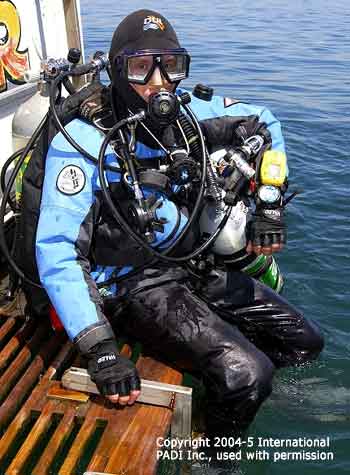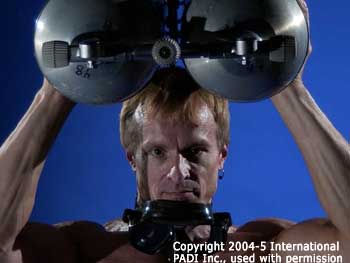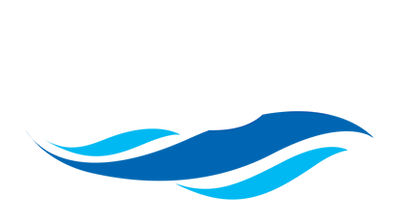|
Q. When / where did you start diving?
A. I taught myself to snorkel in 1967 or 1968 and became a certified diver in 1970. I was living in Atlanta, Georgia at the time.
Q. What motivated you to become a diver?
A. Probably a lot of things, but I think it started mainly with watching Seahunt reruns when I was in kindergarten and the first grade. My mother made me toy scuba cylinders out of oatmeal cartons so I could swim around the house playing Mike Nelson.
Q. Where have you been?
A. One of the blessings I've enjoyed is the opportunity to dive many places. My diving has ranged from popular destinations including Bonaire, Grand Cayman, the Bahamas, Hawaii, Fiji and Malta to tec destinations like the USS Monitor, some of the remote parts of the Nohoch Nah Chich cave system, the Cortes Banks and Cannonball cave in Missouri. It's a long list.
Q. What diving accomplishment are you most proud of?
A. Like most endeavors, in diving most major accomplishments are team efforts, not solo efforts. Therefore, I try not to take pride (not that I'm perfect in this) but rather feel privileged to be the "tip of the spear" at times. Probably the most noteworthy of these experiences has been exploring the downstream side of Sistema Camilo with the Cambrian Foundation Akumal Cave Diving Expeditions in 2000, 2004 and 2005. The first year was especially notable because we were putting as much as a 1000 feet of line through unexplored passage on a single dive.
Q. What will the sport of diving be like 20 years from now?
A. The same, only different.
|




